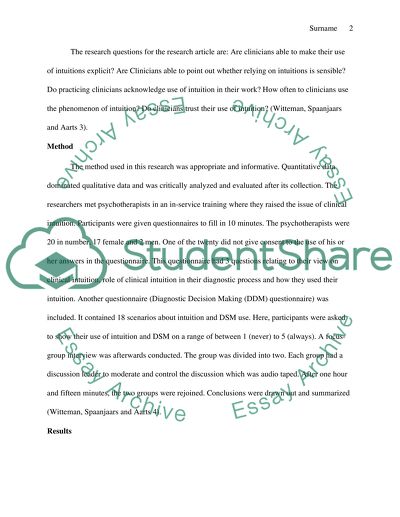Cite this document
(“Review of the Research Article Clinical Intuition in Mental Health Essay”, n.d.)
Review of the Research Article Clinical Intuition in Mental Health Essay. Retrieved from https://studentshare.org/psychology/1451454-expert-judgment-and-intuition-are-the-best-means
Review of the Research Article Clinical Intuition in Mental Health Essay. Retrieved from https://studentshare.org/psychology/1451454-expert-judgment-and-intuition-are-the-best-means
(Review of the Research Article Clinical Intuition in Mental Health Essay)
Review of the Research Article Clinical Intuition in Mental Health Essay. https://studentshare.org/psychology/1451454-expert-judgment-and-intuition-are-the-best-means.
Review of the Research Article Clinical Intuition in Mental Health Essay. https://studentshare.org/psychology/1451454-expert-judgment-and-intuition-are-the-best-means.
“Review of the Research Article Clinical Intuition in Mental Health Essay”, n.d. https://studentshare.org/psychology/1451454-expert-judgment-and-intuition-are-the-best-means.


